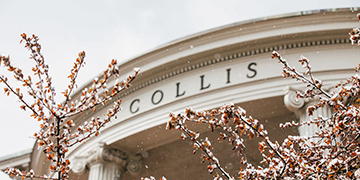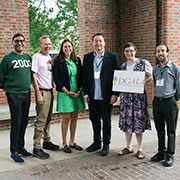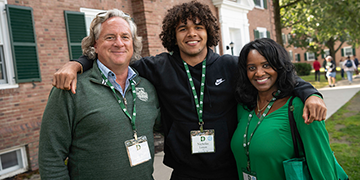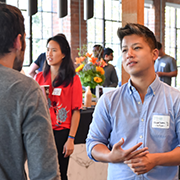Author Frances Cha ’07 on Writing Between Worlds
A Dartmouth alumna explores the collision of culture, beauty, and identity in her debut novel

Jul 7, 2025
5 minute read
Courtney Hall
5 minute read
With a foot in two cultures and a voice all her own, novelist and journalist Frances Cha ’07 has lived a life of dualities—Korean and American, rural and urban, fact and fiction. In this conversation, Cha reflects on her path from Dartmouth’s creative writing program to CNN Korea to the literary world. Her debut novel, If I Had Your Face, follows four Korean women as they navigate the pressures faced by women in a world obsessed with beauty. Here, she shares insights on writing across languages, finding story in personal struggle, and why finishing a book is half the battle.
When did you first know you wanted to be a writer?
I’ve wanted to be a writer since I was eight. That desire shaped nearly everything I pursued—from journalism to studying creative writing at Dartmouth to earning my graduate degree. I always knew I was building toward writing fiction, and every step along the way was in service of that dream.
How did growing up between Korea and the U.S. shape your perspective?
I spent my childhood in Korea but went to boarding school in New Hampshire, then to Dartmouth, then back to Korea every few months. That constant code-switching made me hyper-aware of cultural nuance. When I worked as a journalist for CNN in Korea, I would report in Korean but write for a global audience. That meant constantly asking: What will a Korean audience recognize as familiar? What will surprise an international reader? That lens of duality—of being both insider and outsider—deeply influences how I write fiction today.
Were you considered an international student at Dartmouth?
My family lived in Korea at the time, and I have dual citizenship. I’m not sure how I was officially classified, but I was placed in the international student freshman trip, so I guess that was the category.
What was your experience like at Dartmouth?
I loved it. I always describe it as idyllic. The relationships you form with professors are extraordinary. I had dinner at their homes, got to know their kids—it was the kind of close-knit community I don't think I could’ve found anywhere else.
I was editor-in-chief of the literary journal, which met in the Sanborn basement around this beautiful old wooden table where we’d talk poetry. It was almost too perfect—like something out of a novel itself.
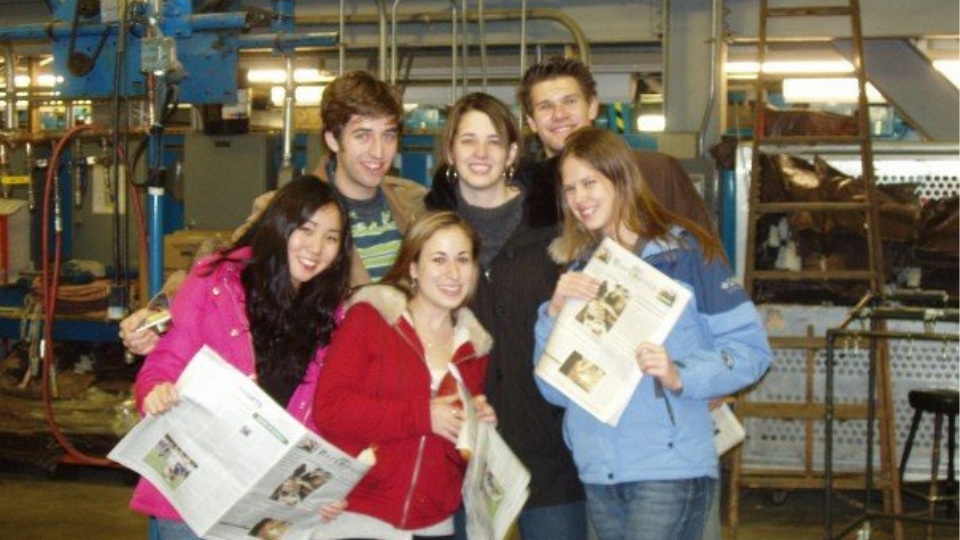
Were there professors who left a lasting impact?
Even though I never took a class with her, Cleopatra Mathis was like the English department’s godmother—warm, supportive, always present. Catherine Tudish, who led our fiction workshops, would invite us to her lovely Vermont home, and we’d discuss our stories by the fireplace. She’d even knit us socks. That kind of intimacy and care—it’s rare.
Did you explore other academic paths before committing to writing?
During my first year, I made a point of taking classes outside of creative writing just to be sure. I wanted to explore everything—religion, science, politics—before circling back. And it helped. I actually think some of the best writers are experts in something besides writing. If you’re a forest ranger or a historian, you bring something unique to the page. The writing itself can be taught, but the perspective—that’s what makes it powerful.
How did your work in journalism influence your fiction writing?
Being edited daily—sometimes pretty harshly—really strips away any ego. I’d turn in a story, and it would come back completely rewritten, with a headline I’d never choose, and still have my name on it. That took getting used to. But over time, I learned to detach. It was excellent training. And of course, journalism constantly exposed me to fascinating people and situations, which fed my imagination in ways I didn’t realize until later.
You're now writing children’s books. What inspired that shift?
Having kids! I started reading my childhood favorites with them and realized…wow, a lot of these haven’t aged well. Some are subtly—or not so subtly—problematic. That made me want to write new stories for them and for kids like them. I’ve published two picture books, The Goblin Twins and its sequel. I’m also translating one of my all-time favorite Korean books, called Watermelon Pool, into English. Korean picture books are so different from American ones—often no plot, no central character, sometimes dark or abstract. Translating one has been a joy.
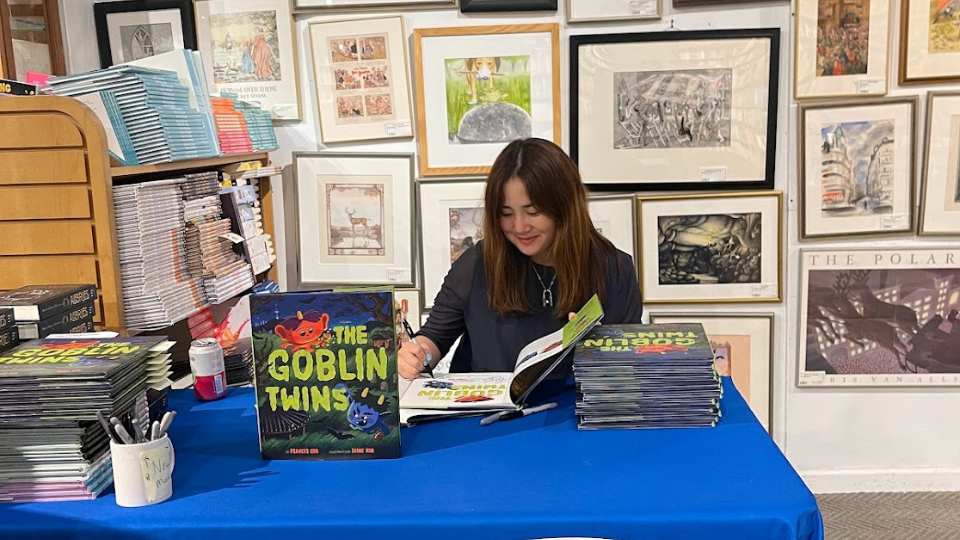
How did your multilingual background influence your novel?
When I first started writing it, I mixed Korean and English freely. Eventually, it became an English-language novel, but it was important to me to hold on to rhythms of Korean conversation. I wanted it to feel authentically Korean—not written to explain Korea to outsiders. I wasn’t interested in over-translating the experience for Western readers. I wanted it to feel like a Korean book that happens to be in English.
You include a study-abroad character in your novel. Why was that important to you?
There’s a huge population of Korean students who study abroad, and yet they’re rarely represented in Korean or Korean American fiction. When I studied in the U.S., Korea was the third-largest group of international students, after China and India—despite Korea’s much smaller population. That in-between identity—neither fully Korean nor fully American—is something I know intimately. Writing that character felt like claiming space for a community that often goes unseen in literature.
What do you hope readers take away from your book?
I hope they see it as one story—not the story of Korean women. Sometimes I get feedback like, “This was my first Korean book—why are Korean women like this?” And I want to say, “They’re not. These are just characters. Fictional people doing fictional things.” But when you’re underrepresented, your characters carry an unfair burden of being seen as representative. I hope we get to a point where there are enough Korean stories that mine can just be one voice among many.
What advice do you have for aspiring writers—especially students or alumni who are just getting started?
I teach writing, and I tell my students to start with their deepest anguish. That’s where the story lives. It doesn’t have to be big or dramatic—it just has to be honest. And then finish. That’s the part most people never do. At the start of grad school, our professors told us bluntly: “Most of you won’t publish a book—because you won’t finish one.” And they were right. The key is pushing through. Writing a book is hard, sometimes excruciating, but if you can get to the end, you’re already in rare company.
And remember, a novel is a huge undertaking. Don’t be afraid to start with something smaller.
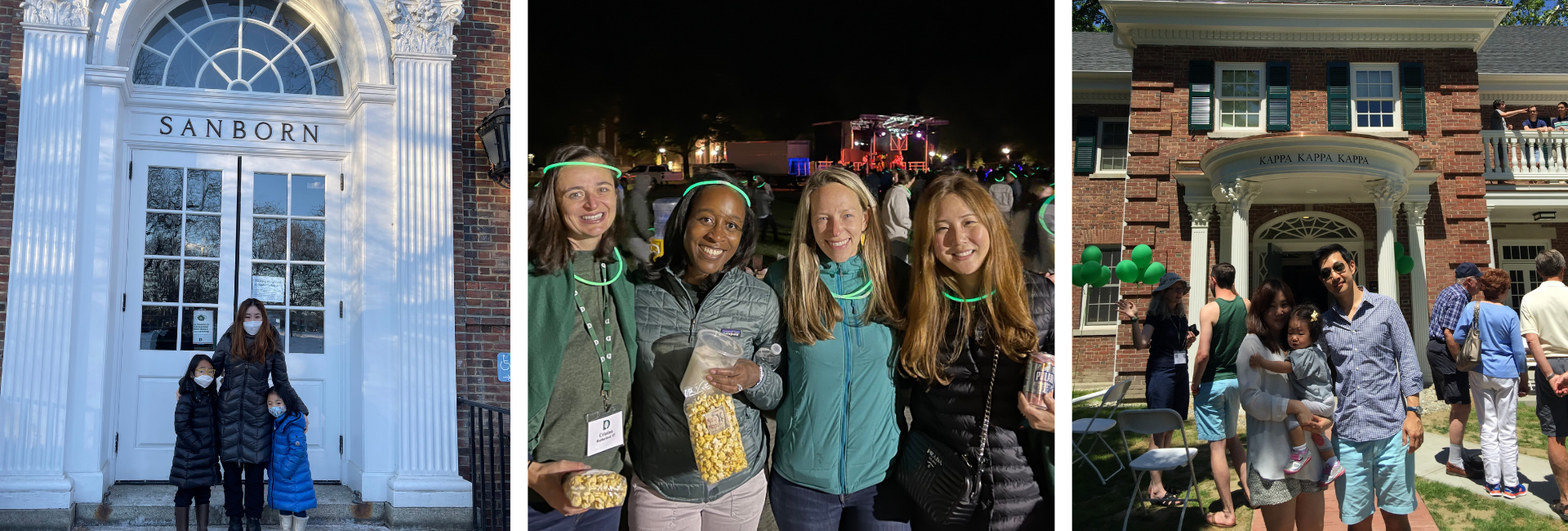
Let’s end with a few Dartmouth favorites: What was your favorite place to study or write?
Sanborn, of course. Though I always got sleepy there because it’s so serene. And the 1902 Room in Baker-Berry—I loved that space, too.
Go-to snack or meal in Hanover?
The classic Collis stir fry and a peach smoothie. Unbeatable.
Any Dartmouth memories that always make you smile?
One night on a DOC trip, a bunch of us trip leaders hiked up to another group’s camp with tiki torches and circled them, chanting “shark bait” like a funny scene in Finding Nemo. We brought snacks and made it into a little midnight party in the woods. Another time, I secretly planted a pineapple in the river and convinced the new hikers it was “New Hampshire river fruit.” I had the city kids who’d never been camping before, so I could get away with that little prank!
Any final thoughts for fellow alumni or readers?
I’m just incredibly grateful for Dartmouth. It gave me lifelong friendships, my husband, and a creative community I still cherish. I had two different Dartmouth meetups just this week. That says a lot. I feel such delight and immediate kinship when I meet a Dartmouth person in the wild, and it's always reciprocated.
Join us on Tuesday, July 8 at 7:00 p.m. ET for a virtual Author Talk with Frances Cha ’07 discussing her novel If I Had Your Face with Cheryl Bascomb’82, Vice President for Alumni Relations at Dartmouth.


